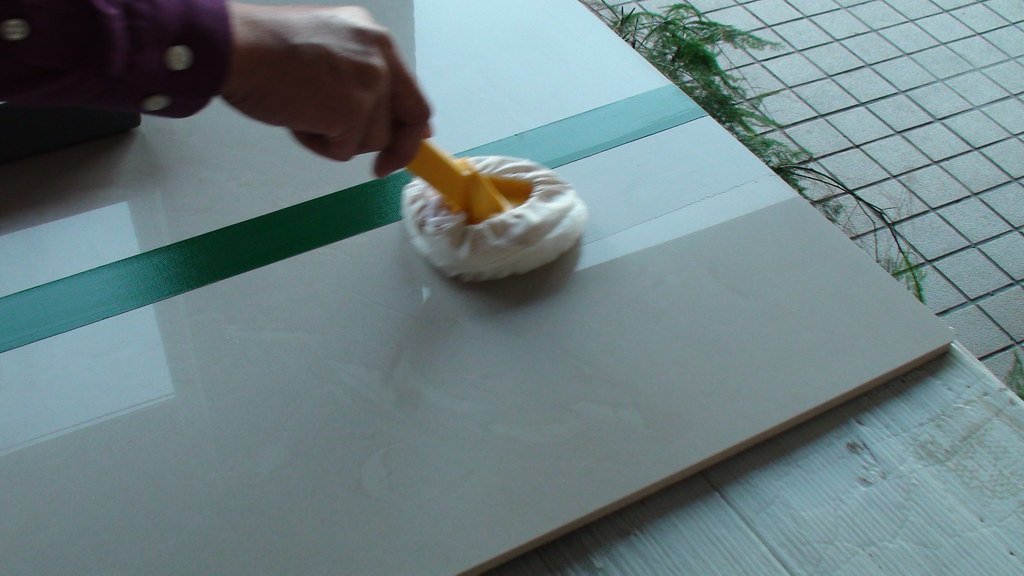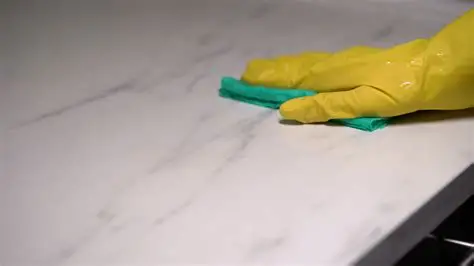Quartz countertops are a top choice for homeowners who value durability, style, and low maintenance. But even the most resilient surfaces aren’t immune to occasional spills and stains. Whether you’re dealing with coffee marks on your white quartz countertops or grease on your black quartz countertops, knowing how to properly remove stains is key to keeping your kitchen or bathroom looking spotless.
In this complete guide, we’ll show you how to remove stains from quartz countertops, covering everything from common culprits to effective cleaning solutions. We’ll also explore the best cleaning practices and prevention tips for quartz kitchen countertops and quartz bathroom countertops alike.

What Are Quartz Countertops?
Before jumping into stain removal, it’s helpful to understand what quartz countertops are made of.
Quartz countertops are a type of engineered stone countertops. They are crafted from roughly 90–95% ground natural quartz blended with resins, pigments, and polymers. This manufacturing process produces non-porous, stain-resistant quartz slabs for countertops that are ideal for high-traffic spaces.
👉 Learn more: What Are Quartz Countertops?

Are Quartz Countertops Stain-Proof?
The Reality of “Stain Resistance”
While quartz countertops are indeed stain-resistant, they are not entirely stain-proof. Their non-porous surface means most substances won’t penetrate, but if spills are left unattended for too long, especially from acidic or pigmented liquids, they may leave a visible mark or discoloration.
Common Stain Sources
- Coffee and tea
- Red wine
- Tomato sauce
- Grease and oil
- Ink or permanent marker
- Makeup and lotions (especially in bathroom vanities)
How to Clean Quartz Countertops (Routine vs Deep Stain Cleaning)
Daily Cleaning Tips
Routine maintenance helps prevent stains from forming in the first place:
- Use a soft cloth or sponge with warm water and a few drops of dish soap.
- Avoid abrasive scrubbers or harsh chemicals.
- Wipe up spills immediately.
Want more? See: How to Clean Quartz Countertops
How to Remove Stains from Quartz Countertops
Step 1: Identify the Type of Stain
Understanding the stain type will help you select the most effective cleaning method:
- Organic stains (coffee, wine, food)
- Oil-based stains (grease, lotions)
- Chemical stains (ink, dye, nail polish)
- Hard water stains (mineral deposits)
👉 For granite care, see:
How to Clean Hard Water Stains on Granite Countertops?
How to Clean Hard Water Stains on Granite Countertops?
Step 2: Basic Stain Removal Process
For Fresh Spills
- Blot the spill immediately with a paper towel.
- Use warm soapy water and a microfiber cloth to clean the surface.
- Rinse and dry thoroughly.
For Light Surface Stains
- Make a paste of baking soda and water.
- Apply it to the stained area and let it sit for 10–15 minutes.
- Gently scrub with a soft cloth.
- Rinse and dry.
Step 3: Deep Stain Cleaning Methods
Option 1: Isopropyl Alcohol (for ink, dye, or markers)
- Apply a small amount of isopropyl alcohol (70%) to a cloth.
- Rub the stained area gently.
- Rinse with water and dry.
Option 2: Glass Cleaner (for greasy stains)
- Spray a non-abrasive glass cleaner directly onto the stain.
- Let it sit for 5–10 minutes.
- Wipe with a microfiber cloth and rinse.
Option 3: Commercial Quartz Cleaners
There are many quartz-safe cleaners designed specifically for veined quartz countertops and marble look quartz countertops. Choose a pH-neutral product that won’t damage the resin surface.
Step 4: What to Avoid When Cleaning Quartz
- No bleach or high pH chemicals
Harsh cleaners can damage the resin binder in quartz. - Avoid abrasive pads or steel wool
These can scratch even tough quartz surfaces. - Never use oven cleaners
They contain lye, which can permanently discolor quartz.
How to Remove Specific Stains
Grease and Oil
- Use dish soap with warm water.
- For stubborn areas, apply degreasing cleaner (quartz-safe).
Wine and Coffee
- Blot immediately.
- Use baking soda paste or glass cleaner for any residue.
Ink or Marker
- Try rubbing alcohol or a Magic Eraser (test a small area first).
Hard Water Spots
- Use a vinegar solution (equal parts vinegar and water).
- Gently wipe with a soft cloth and rinse.
Preventing Stains on Quartz Countertops
- Use coasters under drinks and mugs.
- Wipe spills quickly, especially on white quartz countertops.
- Avoid leaving metal cans or bottles directly on the surface (can cause rust rings).
- Use cutting boards to avoid scratches that trap residue.
Should You Seal Quartz Countertops?
You may wonder if sealing could help prevent stains altogether. The good news: you don’t need to seal quartz countertops. Their non-porous structure means that sealing isn’t required and may even damage the finish.
👉 Related Reading:
Do You Have to Seal Quartz Countertops?
Should You Seal Quartz Countertops?
Are Quartz Countertops Worth It?
Absolutely. Quartz offers an excellent combination of beauty, resilience, and ease of care. For those seeking low maintenance quartz countertops for busy families, the benefits are undeniable:
- Minimal upkeep
- Long-lasting durability
- Wide selection of styles like Calacatta quartz countertops, grey quartz countertops, and black quartz countertops
Quartz Countertop Installation Cost and Options
Prices can vary depending on style and location, but here’s a general breakdown:
| Type | Average Cost per Sq. Ft. |
|---|---|
| Budget quartz countertops | $50–$70 |
| Mid-range quartz | $70–$100 |
| Premium quartz (Calacatta, etc.) | $100–$150+ |
Search locally for:
- Quartz countertops near me
- Quartz countertops in [city/region]
- Local quartz countertop suppliers or quartz countertop showrooms
Also consider hiring custom quartz countertop installers for precision fitting and seam finishing.
DIY Quartz Countertop Installation Tips
Thinking of taking on the challenge yourself? Keep in mind:
- Precision is key: Even small misalignments can affect seams.
- Use correct adhesives: Not all glues work with engineered stone countertops.
- Proper support: Quartz is heavy and needs strong cabinet bases.
👉 Explore more: DIY quartz countertop installation tips
Conclusion
Stains on quartz countertops may be rare, but they can happen—especially in busy kitchens or bathrooms. The key is to act fast, use gentle and effective cleaning methods, and avoid harsh chemicals that can damage your surface.
With the right care and attention, your white, grey, or marble look quartz countertops will remain a stunning centerpiece in your home for years to come.
Keep them clean, no sealing required, and enjoy all the benefits of one of the most versatile countertop materials on the market today.

